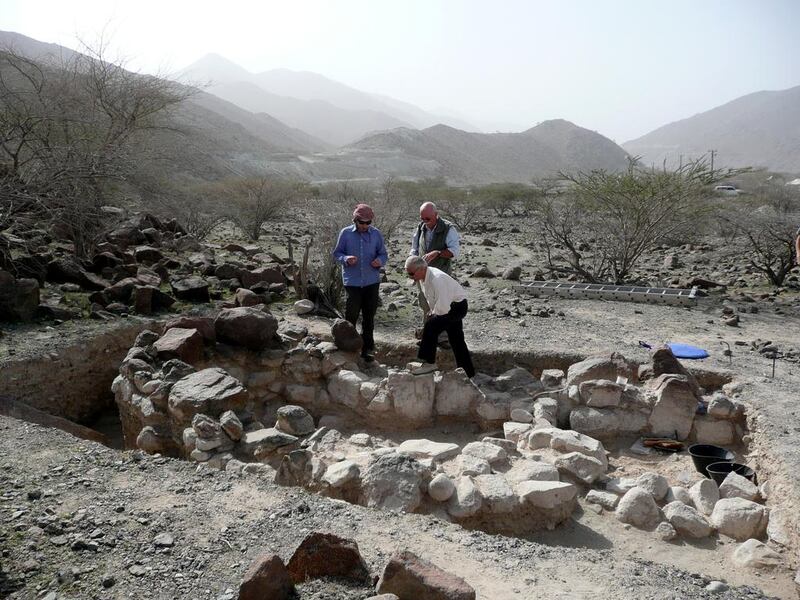SHARJAH // Bronze ore smelting workshops, burial grounds, clay homes, stone tools and anvils are among the items unearthed last year in archaeological digs.
Several excavations at sites across Sharjah, including in Mleiha, Al Faya, Wadi Al Hilo, Tell Abraq and Dibba Al Hisn, revealed a wealth of discoveries dating from half a million years ago.
In Mleiha, in the central region of the emirate, a Belgian team from Ghent University found remains of homes made of clay containing pottery, as well as burial grounds.
A German team from Tubingen University and the Sharjah Department of Antiquities carried out work near the eastern coast of Sharjah on a site from the Bronze Age in Wadi Al Hilo, which, according to the antiquities department, was a centre for smelting, the process of extracting a metal such as tin or copper from its ore. The teams found many hammers, anvils and copper slag, all of which are related to the smelting process.
Carbon testing showed the finds dated back between 8,000BC and the Islamic era, the authority said, though it did not provide further details.
An American team from Bryn Mawr College is also continuing work in Sharjah’s Tell Abraq, near the border with Umm Al Quwain, which has archeological sites dating back to between 3,000BC and the Stone Age.
There are also ongoing excavations by a Japanese team from Kanazawa University at a site in Dibba Al Hisn. Already they have learnt that trade and commerce connected the area with other parts of the world.
Excavations in Al Faya mountains and Suhaila have also unearthed stone tools that add valuable information to the history of human beings in the area. According to the authority, the tools found date as far back as up to half a million years ago.
Teams from the Department of Antiquities also worked on several sites in the central and eastern regions of the emirate.
In Umm Al Quwain, teams of archaeologists found a site with about 500 tombs dating back 2,000 years at Ed-Dur, one of the largest archaeological sites in the country. Excavations also uncovered pearls, iron and bronze arrowheads, pottery and glassware. The antiquities found at Ed-Dur are being restored and will go on display at the Umm Al Quwain Museum.
tzriqat@thenational.ae






